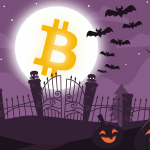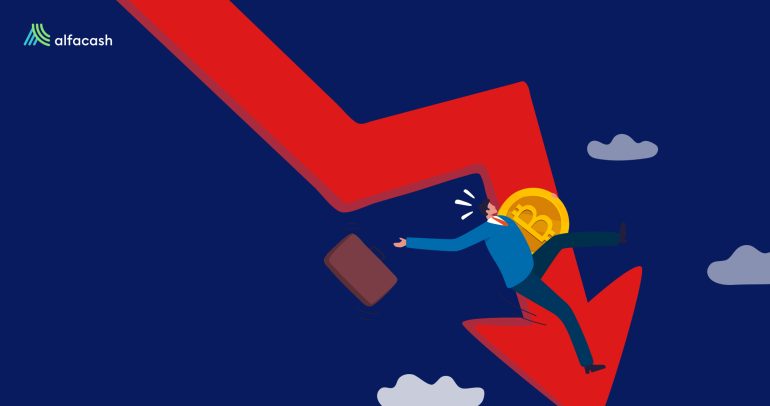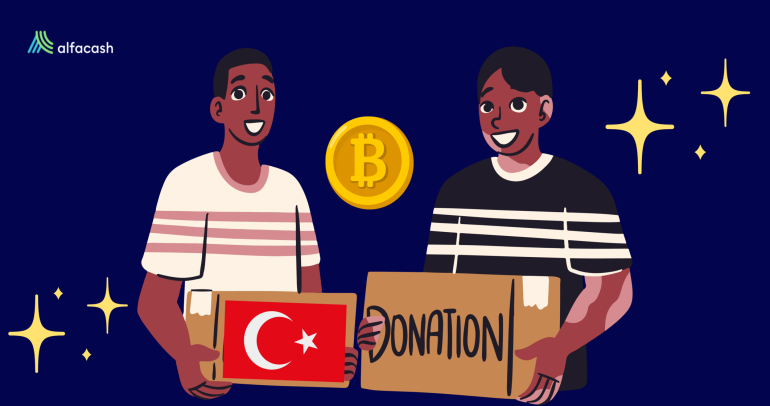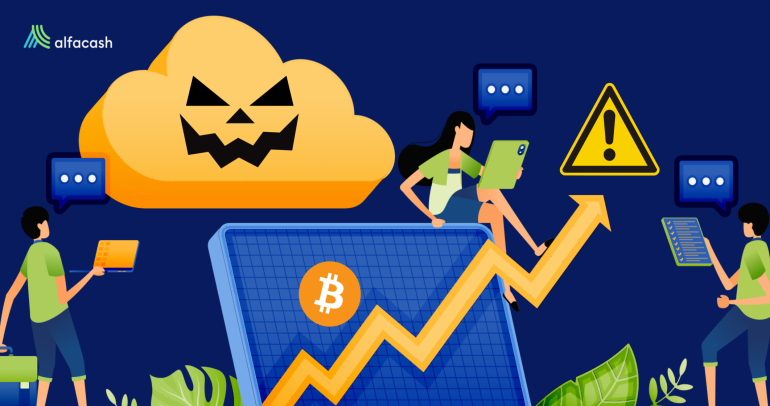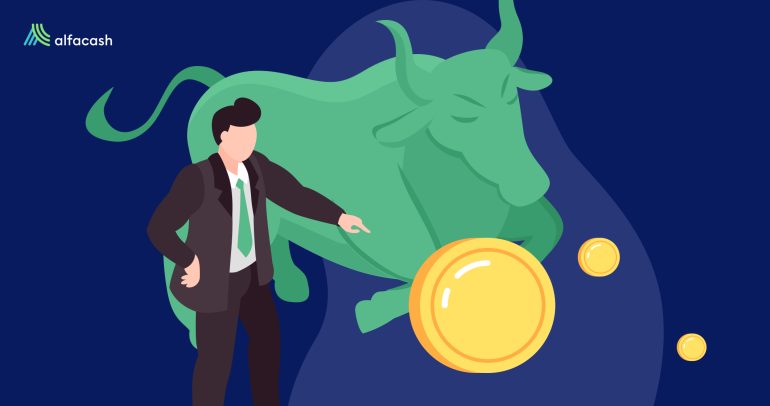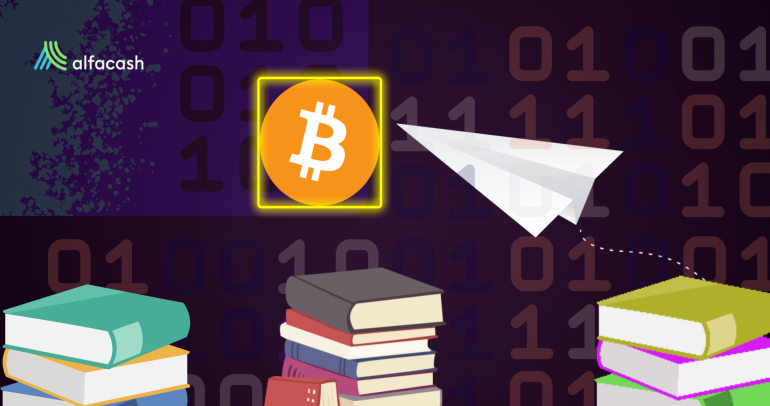We can say this “spooky” month wasn’t that spooky, since we had a healthy market and now BitcoinBitcoin is the first decentralized digital currency. It was created in 2009, by an anonymous founder or group of founders... More is on the rise. And yes, there’s some good news… but not everything was bright. Let’s quickly check the most important facts of the month.
Launches in crypto and beyond
- PayPal adopted Bitcoin and some other cryptos to let its customer buy, sell and pay with them. However, you won’t be able to transfer nor withdraw your own funds once they’re inside the platform. Yes, something is wrong with this.
And that’s not all. Apparently, PayPal wants to acquire some established crypto-companies, such as the old BitGo. Planning some centralization inside the decentralized world? [Bloomberg].

- After years of waiting, the Filecoin mainnet is finally online and its token price skyrocketed with the good news. However, by now the price it’s dumped, and a large number of its miners are “on strike” because the hardware required to contribute is very expensive and this excludes a lot of them [Glassnode].
- A new liquidity mining program is available for yield farmers: the token BOND by BarnBridge. This one is described as “the first fluctuation derivative protocol”, its pool #1 is designed to reduce the impermanent loss, and it works with DAI and Compound. Despite its novelty, it has already surpassed $1M in liquidity [BarnBridge].
- Ripple launched a new credit line for the institutional customers of their service On-Demand Liquidity (ODL). This will allow companies to purchase XRP from Ripple on credit, and they’ll only pay a one-time fee for it. The main idea is to promote even more cross-border payments with XRP [Ripple Insights].
Hacks and scams
- After its collapse in September, the road for the alleged cryptocurrency scam ArbiStar kept dark in October. This auto-trading platform stopped all the payments then, claiming that its bot failed and the invested BTCAn abbreviation for Bitcoin. (around 1B dollars) was lost. They promised refunds for their clients in a sixteen-month long process.
Of course, the legal consequences would come soon. Santiago Fuentes, the leader of this platform, was accused of fraud, belonging to a criminal organization, and money laundering; and he was arrested in Spain by the end of this month. He was released after 24 hours, but his trial is pending and he can’t abandon the country [EuropaPress].

- The yield farming protocol Harvest Finance was hacked, and $24M were siphoned from their USDC and USDT vaults. The attacker took advantage of an exploit of the arbitrage and impermanent loss “that influences the value of individual assets inside the Y pool of Curve.fi”.
The Harvest developers are working on a security update for the protocol and a method to refund the affected people. Likewise, they’re offering a $100K bounty for who helps to recover the funds [Harvest Finance].
- The popular crypto-trading app Robinhood was hacked as well. The attack was maintained under strict privacy by the company; therefore, the number of the lost funds isn’t certain. According to an anonymous source, around 2.000 accounts were affected, and some of the victims stated they’ve lost thousands of dollars [Bloomberg].
- The COVID-19 vaccine might not be ready yet, but at least now is available a simple vaccine against ransomware. This is a type of malware that can affect anyone in the world and usually ask for payments in cryptocurrencies after hijack all your data remotely. By installing the new software vaccine from GitHub, you can avoid this cyberattack [Florian Roth].
More laws for cryptocurrencies
- The Financial Conduct Authority (FCA) from the United Kingdom banned this month the crypto-derivatives in their country. These are monetary contracts (usually for investment) that derive their value from an underlying entity —cryptoassets, in this case. The FCA considers this kind of instrument too risky for retail investors [FCA].
- Spanish lawmakers have approved this month a bill that would compel cryptocurrencyA digital currency running on a blockchain and built with cryptography. Contrary to central-bank issued currency, cryptocurrency issuance rules are... More users to identify themselves and disclose their funds and operations to the government. This would be a measure to combat tax avoidance [@desdelamoncloa].

- The U.S. Department of Justice (DOJ) issued this month the report “Cryptocurrency Enforcement Framework”, which remarked the “transformative potential” of cryptocurrencies, but also described the ways they can be used as a crime tool and how to enforce the existing laws to avoid this. According to the document, at least nine government entities would have laws against these crimes, including the IRS and the SEC [DOJ].
- South Korea is also heading to proper cryptocurrency regulation, especially for business. The new “Virtual Asset Business Law” is a work in progress between the lawmakers and the national crypto-industry stakeholders. The main purpose of the future law would be “a huge transformation to digital economy in the post-COVID-19 era and for the development of financial industries” [Delio].
Some extra news
- OneCoin is probably the most (in)famous cryptocurrency scam that ever existed, stealing at least $4B from worldwide investors. And maybe that’s exactly the reason why it’ll have its own movie produced and starred by Kate Winslet. The name’s “Fake!” and doesn’t have a release date yet [Deadline].
- Atari will come back to the videogame consoles this November with its new “Atari VCS”. This one will include an Internet connection and built-in cryptocurrency functionality for in-game purchases. Indeed, Atari will also be launching its own token [Bloomberg].

- The Total Value Locked (TVL) in DeFi apps, and especially for yield farming, reached a new record this October, with $12.3 billion invested. Uniswap is still the leader, with $2.7 billion TVL and a 24% market share. It’s followed by MakerDAO and Wrapped BTC [DeFiPulse].
- The COVID-19 hasn’t stopped the cryptocurrency market. Since the beginning of the pandemic in March, the total crypto market capitalization has increased by +189%. For its part, Bitcoin has a +80% increase on its price and surpassed already the yearned $13K barrier. It’s bulls season! [CoinMarketCap].
Featured image by Benjamin Balazs from Pixabay
Wanna trade BTC, ETH, and other tokens? You can do it safely on Alfacash! And don’t forget we’re talking about this and a lot of other things on our social media.
Twitter * Telegram * Instagram * Youtube *Facebook * Vkontakte


